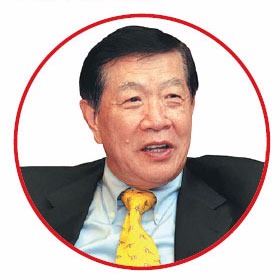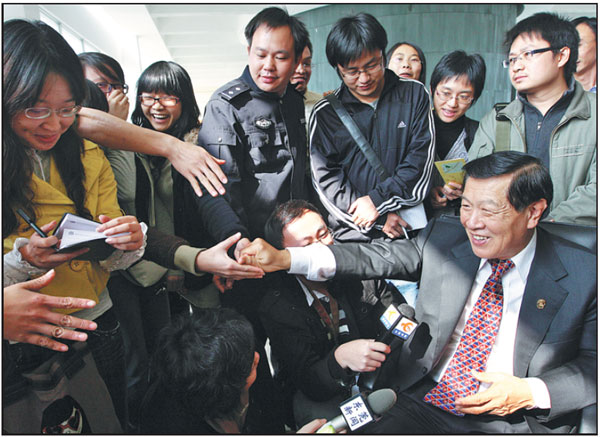
Nov 22, 1938 in Rugao, Jiangsu province
EDUCATION:
? 1959: Graduates from Central Police College, Taiwan
? 1972: BSc in forensic sciences, City University of New York
? 1974: MSc in biochemistry, New York University
? 1975: PhD in biochemistry, NYU
CAREER:
? 1960-65: Officer in the Taipei Police Department, rising to the rank of captain
? 1979-98: Director and chief criminalist, Connecticut State Police Forensic Laboratory
? 1998-2000: Commissioner of the Connecticut Department of Public Safety
? 2001-10: Commissioner emeritus of the Connecticut State Police Forensic Laboratory
? 2006: Establishes the Henry C. Lee Institute of Forensic Science at University of New Haven, Connecticut, where he serves as director of forensic research and training
? September 2013: Accepts consultancy role at China's Procuratorate Technology Information Research Center, part of the Supreme People's Procuratorate
? 2016-present: Chairman of the Silk Road Forensic Consortium
Top forensic scientist finds evidence of great progress

Preserving cultures
Lee was born in Rugao, Jiangsu province, and was a child when his family moved to Taiwan. He took an interest in law enforcement from a young age and graduated from the island's Central Police College in 1959.
For five years he was an officer with the Taipei Police Department, eventually rising to the rank of captain, before he and his wife, Margaret, emigrated to the US.
After witnessing violent police interrogations and even the torture of criminal suspects in Taiwan, Lee said he felt such tactics were cruel and ineffective, as they weaken the credibility of evidence and confessions.
Instead, he decided to study forensic science. While paying his way working part-time jobs, including as a waiter and lab technician, between 1972 and 1975, Lee obtained a bachelor's degree from City University of New York, and a master's and PhD in biochemistry from New York University. He went on to teach at the University of New Haven, Connecticut.
In 1985, while director of the Connecticut State Police Forensic Laboratory, Lee was invited by China's ministries of public security and education to lead a monthlong training course for police officers, legal professionals and lab technicians at Renmin University of China.
The trip was his first time back to the Chinese mainland and marked the start of decades of exchanges between Lee and scientists and criminal investigators nationwide.
"After an increase in child kidnappings in the '90s, I returned to my homeland again. I introduced how to use DNA and advanced chemical reagents to identify suspects and solve such cases," he said.
It was also around this time that Lee became commissioner of the Connecticut Department of Public Safety, making him the first Chinese-American to lead a state-level police authority in the US. He held the post until his retirement in 2000.
Over the past 18 years, Lee has continued to consult on criminal cases around the world, as well as direct the Henry C. Lee Institute of Forensic Science at the University of New Haven, Connecticut.
He returns to China seven to eight times a year to deliver lectures, sometimes to students at college or high school. "I want to educate them to be good people," he said. "I tell them not to always be looking at their smartphones, to go see the world."
Reflecting on his early years in the US, he said he faced discrimination in his field. "American people sometimes looked down on me for my foreign background. But I didn't give up. I was determined to prove myself."
He went on to become a leading authority, working on high-profile cases such as the O.J. Simpson murder trial, a reinvestigation into the assassination of US president John F. Kennedy, and the hunt for the Washington sniper.
Lee said the reform and opening-up policy introduced by China in 1978 led to rapid economic and societal developments, allowing many Chinese to study or live abroad.
"A good thing is that more Chinese are going out to further study forensic science. They will come back to use that knowledge to serve their country," he said.
"I'm happy to see more Chinese now working with Americans in forensic labs, but I always advise them to be leaders in the workplace. We should break Western stereotypes by showing our abilities and leadership."
He also suggested overseas Chinese should be diligent and cohesive, to uphold their national dignity and preserve their traditional cultures.
"Only in this way will we speak louder to the world," he said.


